June 11 and Jerusalem - What It Could Mean
For a whole generation, June 11 will be remembered as the day the proud and defiant soldiers of Israel arrived at the Western Wall and flew the proud flag of the Jewish nation atop the dome covering the ruins of the great Beit HaMikdash.

Even secular, disconnected, non-Zionist Jews were astounded by the successful campaigns of the small army of Israel. Fighters, volunteers, Jews around the world would not forget those fateful 6 days of agony as reports poured in of the casualties as the conflict finally came to an end - every name a dagger to the heart of the Jewish people who felt that all these soldiers were their brothers, fighting the fights that need to be fought for our Jewish nation to be able to survive. When we honor fallen soldiers on Yom HaZikaron or we celebrate the reunification on Yom Yerushalayim, we forget that the secular dates still hold meaning and significance to the universal implications of the events that took place - a point of interest that we honor and raise for consideration. But today, we take a moment to recall when our honored and cherished Temple Mount was indeed returned to the Jewish people whose commitment and faith had made it holy.
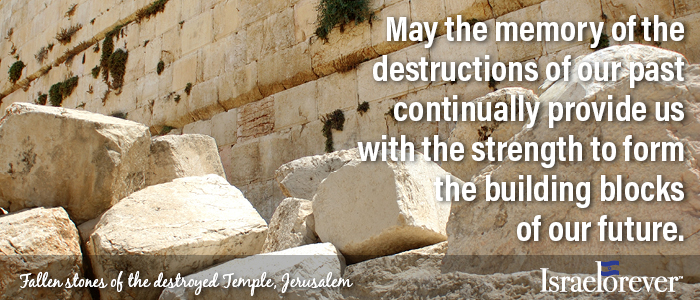
Indeed, the war — and the boundaries and lines of dispute drawn in its aftermath — remain at the heart of the ongoing conflict to this day, and in many ways still provide the contours of the narratives that have emerged. The claim of displacement and dispossession of hundreds of thousands of Arabs has, unfortunately, become central to the anti-Israel movements of today. The impact of the Arab loss has since become exacerbated by the claims of “occupation” and "apartheid" - misnomers for an unfortunate reality that would not exist were it not for the endless incursion of terror and terrorists. Popular media and general ignorance to the facts has thus transformed the memory of military battles into a divisive element, sparking the polarized debates about Israel’s rights to the conquered regions and creating a double standard for the elements of warfare and what is acceptable of any other country than Israel. What was a legal conquering of land has become labeled as an illegal “occupation” - the primary term and driving force behind the extremist negation of Israel’s legitimate rights of leadership of conquered lands protected under international law, and given by biblical and historic rights.
However contentious the outcome may have been, it proved to remaining doubters that the Jewish nation would not allow another destruction of their people, and Israel could not be easily wiped off the map. It helped establish Israel’s permanence in the eyes of its adversaries, the world at large, and, to an extent, in the eyes of its own people - an effort that must continue today and forever.
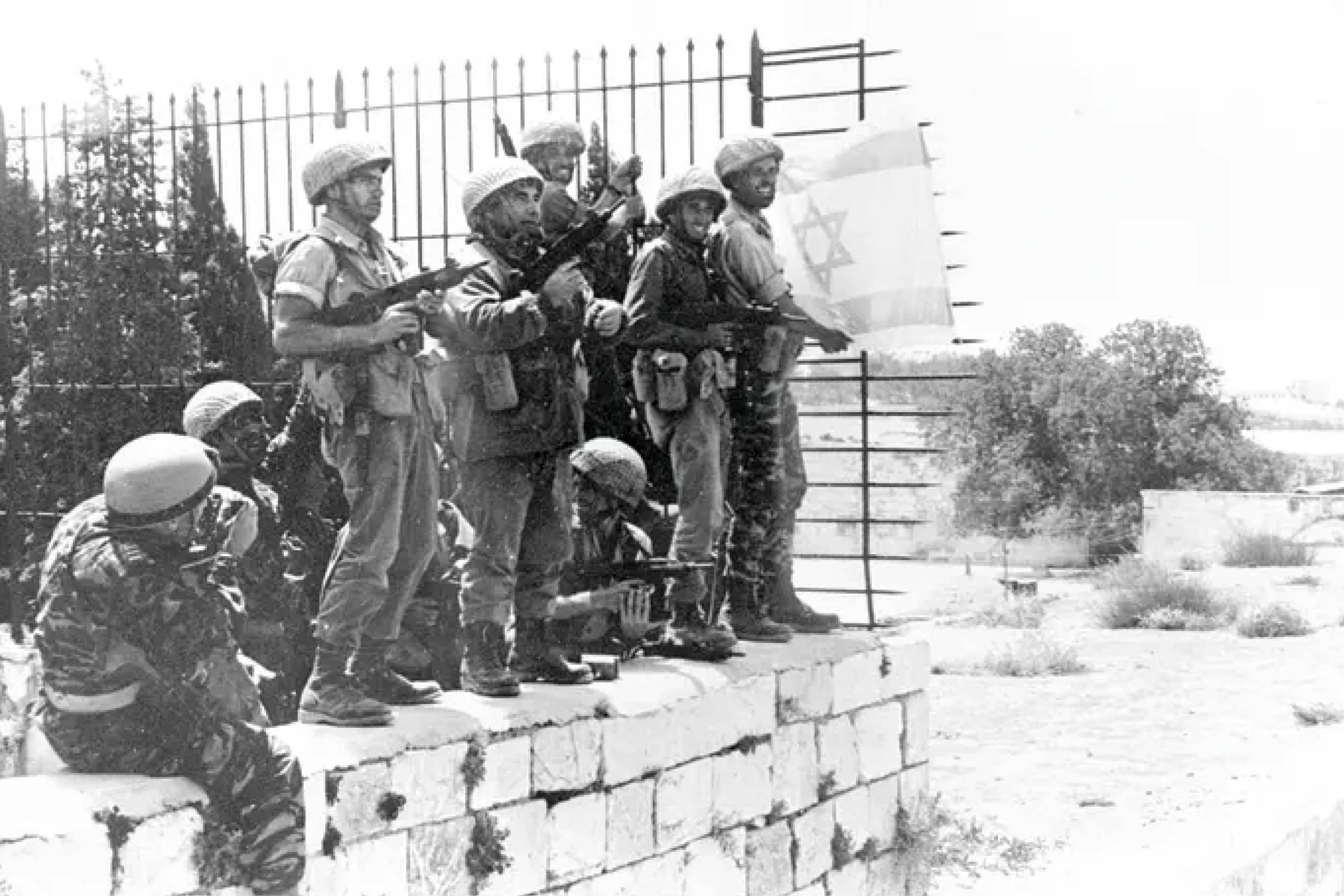
It was a war that changed Israel’s domestic political culture - one that perhaps is showing its face more and more in current events. Israel’s moral realism has proven resilient, even if it remains open to debate by the many sides of her society.
But should the “Palestine'' contradiction that lay at the heart of public opinion be a defining aspect of Israel’s legal rights? Should we not ensure that the justice of the Six Day War be recognized rather than denied by historians and academics, activists and provacateurs?
In our effort to approach history and facts through an apolitical lens of integrity and pursuit of understanding, perhaps we should reconsider how the issues we are facing today may, perhaps, have been borne out of contempt for yet another successful survival after an attempt to eliminate the Jews and Jewish state.

DONATE NOW AND SUPPORT THE VITAL WORK OF ISRAEL FOREVER
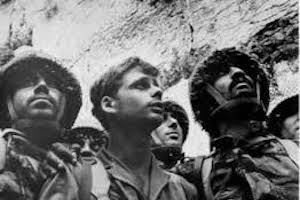 |
WITNESS THE REUNIFICATION OF JERUSALEM "We are sitting right now on the ridge and we’re seeing the Old City. Shortly we’re going to go in to the Old City of Jerusalem that all generations have dreamed about..." (Colonel Motta Gur, 1967) |
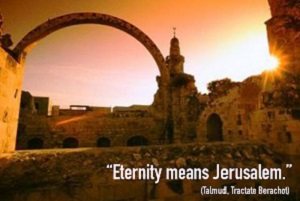 |
Jerusalem is a port city on the shore of eternity. (From Poems of Jerusalem by Yehuda Amichai, Israel's best-known poet and the most widely translated.) |
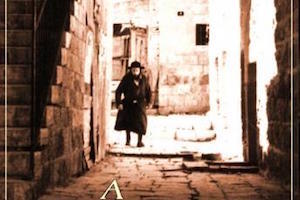 |
Moving between past and present, Elie Weisel’s 6th published work brings us to Israel moments after the Six-Day War. Through his raw emotion, we feel his suffering, his loss and his vision for Israel. |
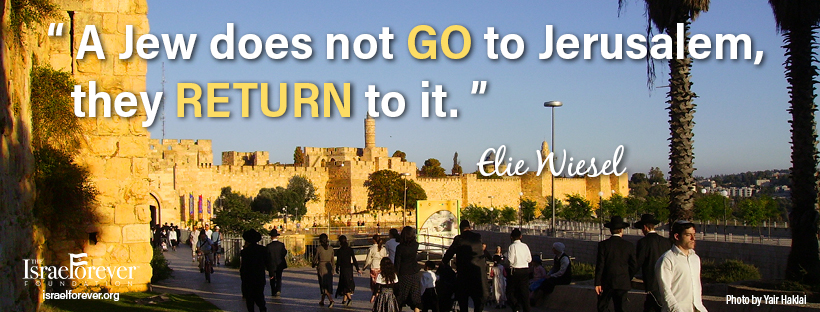 As the world fills with lies, the denial and distortion of historical fact, let us come together to remember and recognize a voice for humanity, a voice of truth.
As the world fills with lies, the denial and distortion of historical fact, let us come together to remember and recognize a voice for humanity, a voice of truth.
THE FUTURE OF TRUTH AND JEWISH JUSTICE RELIES ON US ALL!
JOIN US ON FACEBOOK, INSTAGRAM, AND TWITTER


